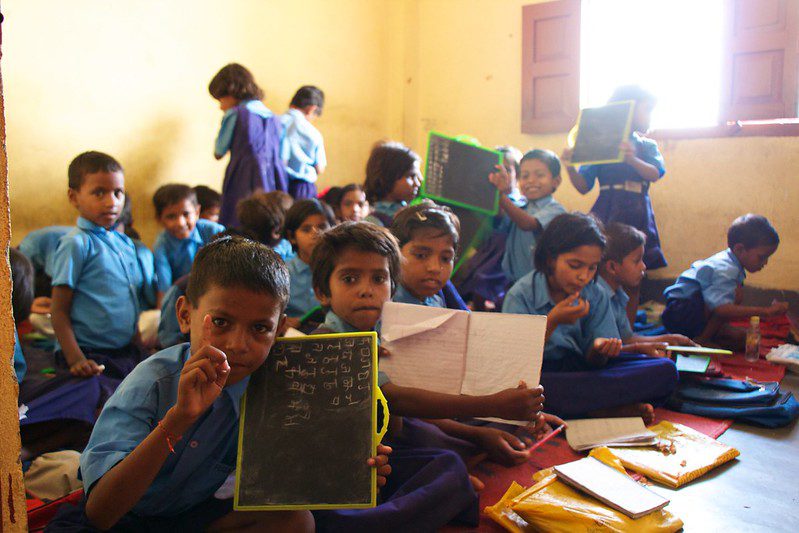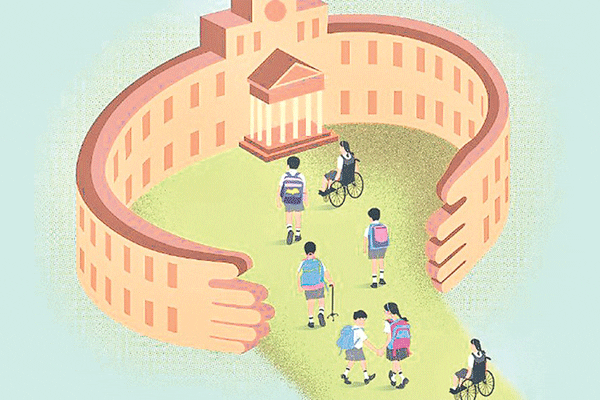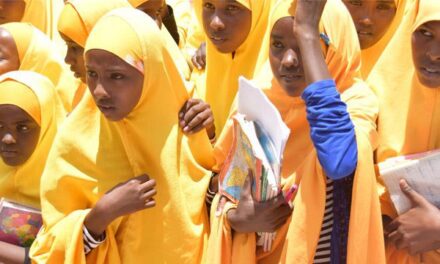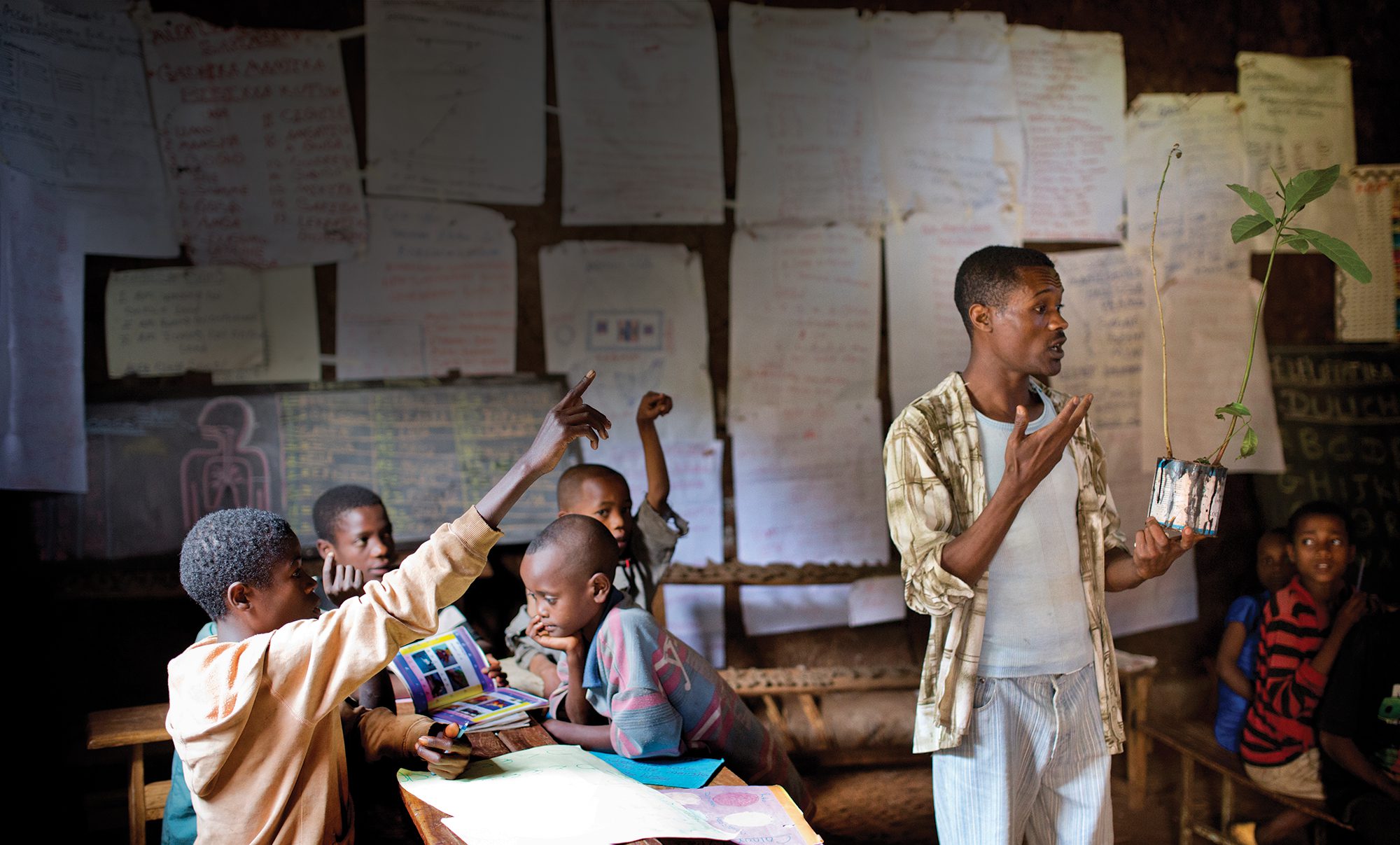By Caroline Dyer, Nisha Thomas, Suraj Jacob, Rahul Mukhopadyay and Arathi Sriprakash. These issues were discussed during a session at the September 2019 UKFIET conference on inclusive education systems.
In this blog we present the conceptual underpinnings of our research project, Researching Accountability in the Indian System of Education (RAISE). Based on an ongoing mixed methods study of relational accountability in primary education in India, RAISE examines how norms for educational provision as set out in India’s Right to Education (RTE) Act are reshaped as they interact with competing ideas and conditions across – and within – different scales of the education system. Focusing on two districts in the states of Bihar and Rajasthan, our cross-scalar analytical approach traces how norms around access, participation and monitoring within families, schools, and the educational bureaucracy interact to produce differential and often inequitable outcomes for children.
Despite making significant progress in student enrolment (above 95%) since the implementation of the RTE Act in 2010, educational outcomes in India continue to remain poor across the country (ASER Centre, 2019). Although effectiveness of the education system has been an on-going focus of concern (Vasavi, 2015), continuing challenges for the state in meeting its obligations to all learners across diverse strands of provision call for a closer analysis of how policy-implementation-outcome ‘gaps’ in the system occur and how they can be better addressed.
While educational governance and accountability in India have attracted long-standing research interest (Dyer, 2000, Pritchett and Pande, 2006), scholarly analyses of accountability in India are broadly functionalist. This stance that is widely reflected in approaches to school system reform emphasises strategies of efficiency, monitoring, and incentivisation. The dominant aim, from this perspective, is to identify specific variables for reform, i.e. identify to specific actors or components of schooling to make selected actors, more ‘accountable’ in their practice (Muralidharan and Sundararaman, 2011). This approach to reform also seems to have an underlying assumption that “progressive change is only achieved through strengthening formal, rules-based institutions’ (DFID, 2010).
The RAISE research project argues that a functionalist approach to educational reform and accountability fails to conceptualise education as a relational system; one that is attentive to the formal, informal, and contested workings of schooling. As such, we put forward an understanding of accountability that seeks to work across scales and actors who are negotiating multiple interests, norms, and practices. RAISE is focused on the formal, rules-based institution of education, but recognises that these are shaped by social relations and a political economy that extends beyond it. These relations are constitutive of accountability in education systems, and yet are rarely the focus of education research.
In this way of seeing, accountability is systemic and relational: the socially situated norms, interests and practices of these actors play out in how they create and attend to unequal learning opportunities and outcomes, and hence shape how the ‘system’ responds to policy commitments and progresses towards policy goals. Hence, we argue that the complexity of meaningful governance reform lies in addressing the invisible, informal ‘everyday’ relations of accountability as much as the visible, formal practices of the system (see also Gaventa, 2006, Sharma and Gupta, 2006). Insight into how these relations of accountability converge and diverge around the most disadvantaged learners and their learning intends can serve as a means of seeing ‘new boundaries of possibility’ for action (Gaventa, 2006, p.30) towards improving delivery of the social contract between government and all citizens of equitable education inclusion.
The paper we delivered at the UKFIET 2019 conference, entitled ‘Relational systems of inclusion and exclusion: a cross-scalar analysis of educational access and participation in India’, is based on findings from the first, qualitative, empirical phase of the RAISE research project. Drawing on empirical data collected through classroom observations, semi-structured interviews and focused group with teachers, school staff, school management committee members, local government officials, parents and family members, community members, and members of educational bureaucracy from Bihar in Patna, we demonstrate the importance of understanding inclusive education systems as relational, i.e., being always attentive to the interaction and reshaping of norms within specific political economies of education.
References
ASER CENTRE, A. 2019. Annual Status of Education Report (Rural) 2018. New Delhi: ASER Centre.
DFID 2010. The Politics of Poverty: Elites Citizens and States. Findings from Ten Years of DFID-funded Research on Governance and Fragile States 2001–2010. London: DFID.
DYER, C. 2000. “Education for All” and the Rabaris of Kachchh, Western India. International Journal of Educational Research, 33, 241-251.
GAVENTA, J. 2006. Finding the spaces for change: a power analysis. IDS bulletin, 37, 23-33.
MURALIDHARAN, K. & SUNDARARAMAN, V. 2011. Teacher opinions on performance pay: Evidence from India. Economics of Education Review, 30, 394-403.
PRITCHETT, L. & PANDE, V. 2006. Making Primary Education Work for India’s Rural Poor: A Proposal for Effective Decentralization. New Delhi: World Bank.
SHARMA, A. & GUPTA, A. 2006. Introduction: Rethinking theories of the state in an age of globalization. The anthropology of the state: A reader,. Malden: Blackwell.
VASAVI, A. 2015. Culture and life of government elementary schools. Economic and Political Weekly, 50, 36-50.





